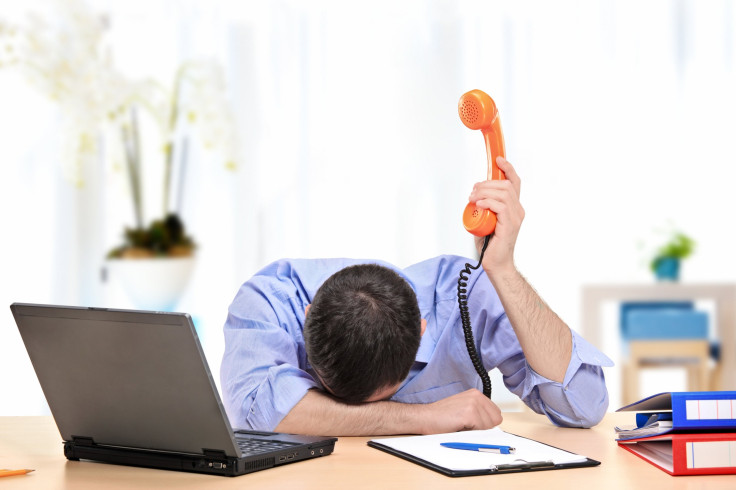75% Of Workers Are Tired During The Day: How To Boost Your Energy At Work

“All I’m doing is sitting at a computer for nine hours straight, but I’m incredibly exhausted throughout the day and by the time I get home. How is that possible?”
Most office workers have probably asked themselves this question. The nine-to-five routine can take a toll on our energy levels, despite the fact that we’re not being physically active at our jobs at all. Going to the gym in the morning might boost your energy for the first half of the day, but soon you’ll find that familiar exhaustion rolling back in by 3 p.m.
In a recently completed survey by Virgin Pulse and vielife —the former of which provides health incentives for AOL employees — researchers found that 76 percent of workers in the U.S. feel tired many days of the week. Nearly 15 percent of the people also said they fell asleep during the day while at work at least once a week; and about one-third of all the participants reported unhappiness with their sleep quality.
According to the National Sleep Foundation, more than 50 million Americans have poor sleep quality and sleep disturbances that negatively impact their work and personal lives. Virgin Pulse’s report notes that lack of sleep not only affects the physical, mental, and emotional health of company’s employees; but poor sleep quality can also affect the company’s overall performance. “Employee absence has been identified as an independent cost associated with poor sleep,” the authors write, “and tired employees, while present at work, may experience difficulties working to their capabilities.” Just think: when you’re tired, you’re more likely to spend an hour on a small task when you could have completed it much more quickly with your full energy and attention. Put quite simply, lost time is lost money.
“Maybe it might take me to do stuff like a little bit longer because either I just might forget an easier way to do it or just take the longer way to do something,” one participant was quoted as saying in the report.
So how can employers improve the sleep quality of their employees? First, let’s look into why people are losing sleep. The researchers found that 75.6 percent of the participants they surveyed watched television before going to bed, and studies have shown that being in front of a glowing TV or computer screen late at night can actually fool your body into thinking it’s still daytime, hindering your sleep cycle. Another 22 percent said they drank over three coffees or other caffeinated drinks every day. Other reasons why workers were tired had to do with work-related stress, long work hours, consuming alcoholic beverages frequently, or even sleeping in the wrong temperatures, all of which had an impact on sleep cycles. Having an overactive mental state, meaning you’re constantly worrying or thinking about stuff that occurs in your life, will also likely cause you to stay awake.
Here are some tips to improve your sleep cycle:
- Get more exercise, but work out in the morning or during the day instead of late at night. You’ll experience a boost of energy if you exercise too close to bedtime.
- Cut down on caffeine. Drink one or two cups of coffee if needed, but make sure it’s before 5 p.m.
- Ease up on the Facebooking before you fall asleep: relaxing your mind is just as important as relaxing your body, so disconnect from checking e-mails or refreshing your news feed.
- Set some time aside to wind down before you fall asleep. Reading can often make you tired, so choose a book instead of a computer screen.
- Decrease sugar intake.
- Walk more: some of the survey participants said that walking and physical activity helped them sleep better.
If you’re still tired at work, try these steps to boost your energy:
- Take bathroom or walking breaks every hour. Walking improves concentration and gets your blood flowing.
- Eat nutritious food — but not too much. Having a heavy lunch will make you want to hit the sack shortly after.
- Reduce your stress levels. Anxiety can be exhausting, so pay more attention to taking care of yourself.
- Drink more water, and stay away from the alcohol. We can all be reminded that battling a hangover at work is going to impair your work flow.



























